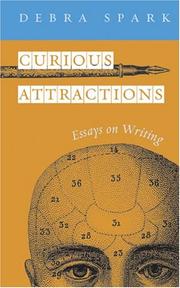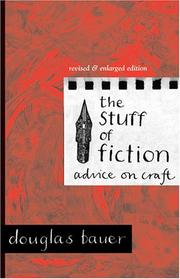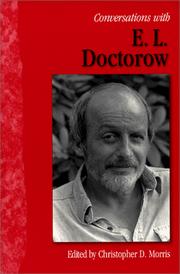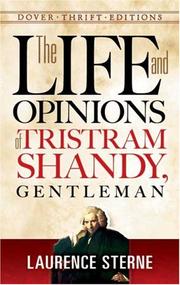| Listing 1 - 10 of 297 | << page >> |
Sort by
|

ISBN: 1282703587 9786612703584 0472027433 9780472027439 9781282703582 661270358X 9780472068975 0472068970 9780472098972 0472098977 Year: 2005 Publisher: Ann Arbor : University of Michigan Press,
Abstract | Keywords | Export | Availability | Bookmark
 Loading...
Loading...Choose an application
- Reference Manager
- EndNote
- RefWorks (Direct export to RefWorks)
Fiction --- Fiction writing --- Writing, Fiction --- Authorship --- Authorship.

ISBN: 1282639072 9786612639074 0472026275 9780472026272 0472031538 9780472031535 9781282639072 6612639075 Year: 2006 Publisher: Ann Arbor University of Michigan Press
Abstract | Keywords | Export | Availability | Bookmark
 Loading...
Loading...Choose an application
- Reference Manager
- EndNote
- RefWorks (Direct export to RefWorks)
Fiction --- Fiction writing --- Writing, Fiction --- Authorship --- Authorship.
Book
ISBN: 0745603254 Year: 1989 Publisher: Cambridge Polity press
Abstract | Keywords | Export | Availability | Bookmark
 Loading...
Loading...Choose an application
- Reference Manager
- EndNote
- RefWorks (Direct export to RefWorks)
Fiction --- Fiction writing --- Metafiction --- Writing, Fiction --- Authorship --- Technique --- Literature
Book
ISBN: 1400867576 9781400867578 9780691606729 9780691063225 0691606722 Year: 2015 Publisher: Princeton, NJ
Abstract | Keywords | Export | Availability | Bookmark
 Loading...
Loading...Choose an application
- Reference Manager
- EndNote
- RefWorks (Direct export to RefWorks)
By analyzing Chaucer's major poetic works, Robert Burlin succeeds in isolating thematic undercurrents with a bearing on the poet's process of composition. He is thus able to relate individual poems to Chaucer's view of himself as a writer, and to assess the internal evidence for a Chaucerian theory of fiction. Professor Burlin contends that a logic underlies Chaucer's aesthetic assumptions whose imaginative configuration appears both simple and inevitable in the context of his poetic development. The author first explores possible antecedents for the terms "experience" and auctoritee, and shows that this common antinomy provides the basis for dividing the poems into three groups.In the "poetic fictions," Chaucer speculates on the value of poetic activity, on the sources of its affect, and on its validity as a means of apprehension. The "philosophic fictions" concentrate on the epistemological aspect of literary activity. In a final group of poems, termed "psychological fictions," the poet explores the speaker's unspoken motives, as well as his pronounced intentions, in telling a tale.Originally published in 1977.The Princeton Legacy Library uses the latest print-on-demand technology to again make available previously out-of-print books from the distinguished backlist of Princeton University Press. These editions preserve the original texts of these important books while presenting them in durable paperback and hardcover editions. The goal of the Princeton Legacy Library is to vastly increase access to the rich scholarly heritage found in the thousands of books published by Princeton University Press since its founding in 1905.
Fiction --- Fiction writing --- Metafiction --- Writing, Fiction --- Authorship --- Technique. --- Chaucer, Geoffrey,
Book
ISBN: 3110883562 9783110883565 9789027930071 9027930074 Year: 2013 Publisher: Berlin Boston
Abstract | Keywords | Export | Availability | Bookmark
 Loading...
Loading...Choose an application
- Reference Manager
- EndNote
- RefWorks (Direct export to RefWorks)
Fiction --- Fiction writing --- Metafiction --- Writing, Fiction --- Authorship --- Technique.
Book
ISBN: 1408157411 9781408157411 Year: 2012 Publisher: London Bloomsbury Pub.
Abstract | Keywords | Export | Availability | Bookmark
 Loading...
Loading...Choose an application
- Reference Manager
- EndNote
- RefWorks (Direct export to RefWorks)
You are a writer and you have a killer book idea. When your project starts to take off you will find yourself managing a writhing tangle of ideas, possibilities and potential potholes. How do you turn your inspiration into a finished novel? Writing a User's Manual offers practical insight into the processes that go into writing a novel, from planning to story development, research to revision and, finally, delivery in a form which will catch the eye of an agent or publisher. David Hewson, a highly productive and successful writer of popular fiction with more than sixteen novels in print in twe
Fiction --- Fiction writing --- Metafiction --- Writing, Fiction --- Authorship --- Technique.
Book
ISBN: 1009072579 1009075551 1316513440 1009075357 9781316513446 Year: 2022 Publisher: Cambridge : Cambridge University Press,
Abstract | Keywords | Export | Availability | Bookmark
 Loading...
Loading...Choose an application
- Reference Manager
- EndNote
- RefWorks (Direct export to RefWorks)
Have you ever wanted to write a novel or short story but didn't know where to start? If so, this is the book for you. It's the book for anyone, in fact, who wants to write to their full potential. Practical and jargon-free, rejecting prescriptive templates and formulae, it's a storehouse of ideas and advice on a range of relevant subjects, from boosting self-motivation and confidence to approaching agents and publishers. Drawing on the authors' extensive experience as successful writers and inspiring teachers, it will guide you through such essentials as the interplay of memory and imagination; plotting your story; the creation of convincing characters; the uses of description; the pleasures and pitfalls of research; and the editing process. The book's primary aim is simple: to help its readers to become better writers.
Fiction --- Authorship. --- Technique. --- Fiction writing --- Metafiction --- Writing, Fiction --- Authorship

ISBN: 157806144X Year: 1999 Publisher: Jackson University press of Mississippi
Abstract | Keywords | Export | Availability | Bookmark
 Loading...
Loading...Choose an application
- Reference Manager
- EndNote
- RefWorks (Direct export to RefWorks)
Fiction --- Novelists, American --- Authorship. --- Interviews. --- Interviews --- Fiction writing --- Writing, Fiction --- Authorship --- Doctorow, E. L.,

ISBN: 048611466X 048645648X Year: 2012 Publisher: Newburyport : Dover Publications,
Abstract | Keywords | Export | Availability | Bookmark
 Loading...
Loading...Choose an application
- Reference Manager
- EndNote
- RefWorks (Direct export to RefWorks)
A forerunner of psychological fiction, and considered a landmark work for its innovative use of narrative devices, Tristram Shandy was both celebrated and vilified when first published in 1759. While the narrative's endless digressions drew criticism, the novel's bawdy humor made it a cause for celebration in eighteenth-century London. Originally released in nine separate volumes, it is literature's famed ""cock and bull"" story, reveling in parody and satire.Laurence Sterne's topsy-turvy masterpiece is, in effect, a novel about writing a novel-producing a fictional world that is as strange an
Fiction --- Infants --- Fetus --- English --- Languages & Literatures --- English Literature --- Fiction writing --- Writing, Fiction --- Authorship

ISBN: 3406059902 Year: 1975 Publisher: München Beck
Abstract | Keywords | Export | Availability | Bookmark
 Loading...
Loading...Choose an application
- Reference Manager
- EndNote
- RefWorks (Direct export to RefWorks)
Fiction --- 82-31 --- 82-31 Roman --- Roman --- Fiction writing --- Metafiction --- Writing, Fiction --- Authorship --- Technique
| Listing 1 - 10 of 297 | << page >> |
Sort by
|

 Search
Search Feedback
Feedback About UniCat
About UniCat  Help
Help News
News